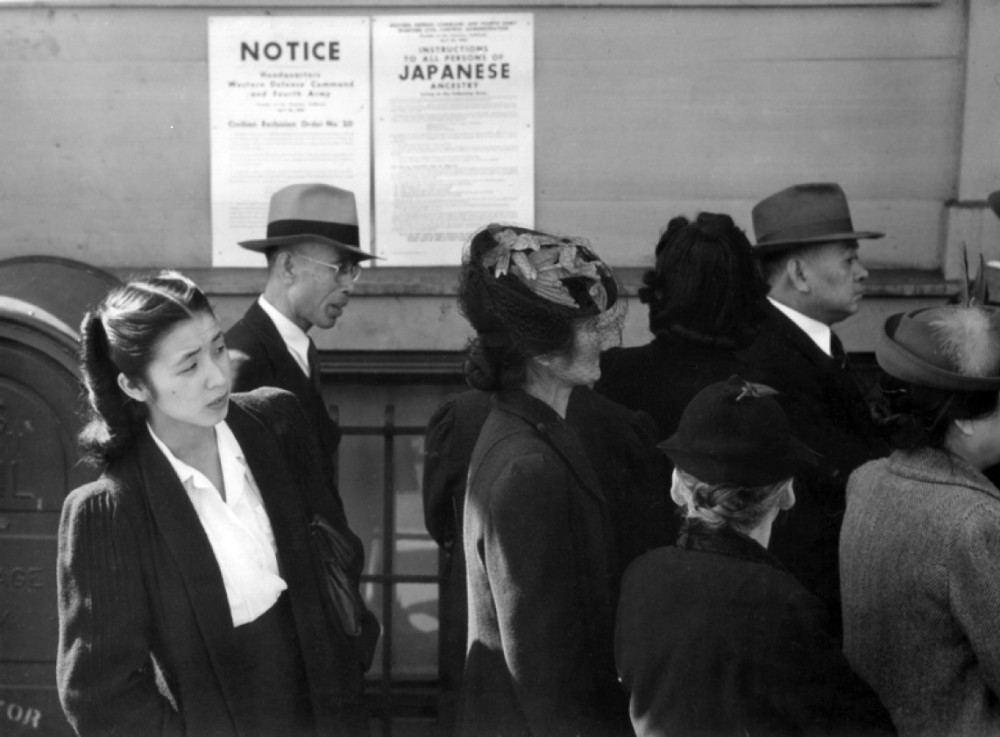The Supreme Court finally rejected the Japanese internment—in the course of upholding Trump's Muslim travel ban
The decision says that Korematsu v. United States was wrong. Does it matter?
In 1944, when President Franklin Roosevelt’s order to single out Japanese Americans for detainment was upheld by the Supreme Court in Korematsu v. United States, Justice Frank Murphy issued a vehement dissent: “I dissent from this legalization of racism,” he wrote. “It is utterly revolting among a free people.” The Century editorialized that Murphy’s words “should be engraved in stone.”
This summer, Korematsu and the national shame it represents were cited in Trump v. Hawaii, in which the court upheld the president’s travel ban which targets several majority-Muslim nations. Justice Sonia Sotomayor’s dissent noted the striking similarities between the two cases: both involved a sweeping executive order plainly motivated by hostility toward a particular group, stereotypes about the alleged dangers that group poses, and appeals to a vaguely defined national security threat.
Read our latest issue or browse back issues.
Writing for the majority, Chief Justice John Roberts explicitly rejected the comparison to Korematsu while rejecting Korematsu itself. The Japanese internment was “morally repugnant,” and Korematsu “has no place in law,” Roberts wrote. But he insisted that the 1944 case “has nothing to do with this case,” which involved simply “a facially neutral policy” regarding security procedures, not any animus toward a religion or group.
But why take Trump’s order at face value? It’s the third version of the Muslim travel ban, which the president himself called “the watered down, politically correct version.” Yet the majority applied a low level of scrutiny, maintaining merely that the president has the authority to restrict entry, that his national security argument more or less makes sense, and that “the text says nothing about religion.”
The context tells a different story, however. It’s no stretch to discern the president’s intent. Trump’s hostility to Muslims is very much in evidence.
Roberts’s opinion displays his general reticence to overrule other branches of government. It also insists on a good-faith reading of the president’s national security argument. In 1944, the court gave Roosevelt too much deference on this front. Now it’s done it again, with a president who has done little to recommend a good-faith reading of anything he says. Roberts says he rejects Korematsu—but he does so in the course of rendering a substantially similar decision.
Sotomayor names Trump’s order for what it is: an offense to fundamental principle. In defiance of the Bill of Rights, the order targets Muslims. It creates a punitive policy and aims it at a class of people. This is always wrong, whether or not the court is willing to say so. Our society judges individuals, based on specific evidence—not groups.
Korematsu was named for plaintiff Fred Korematsu, who refused to comply with the evacuation order. His daughter says that Trump v. Hawaii “dishonored my father” by marginalizing a group of people. Our predecessors at this magazine wrote after Korematsu of their hope “that we shall not have to wait a generation for a reversal of the dangerous decision.” Several generations later, Roberts says we have a reversal. But in the context of this ruling, it’s entirely hollow.
A version of this article appears in the print edition under the title “Court-approved bigotry.”






